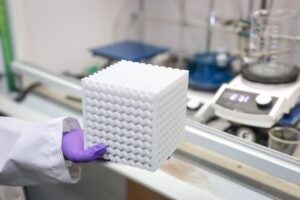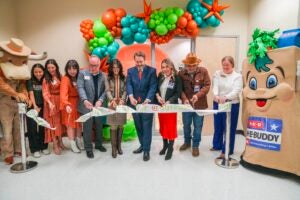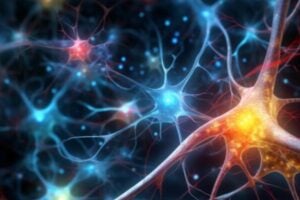Dr. S. Claiborne “Clay” Johnston has been named inaugural dean of the Dell Medical School at The University of Texas at Austin. He will lead the school in developing new approaches for teaching, patient care and research that build on a vision to transform both medical education and health care delivery.
Johnston is currently associate vice chancellor of research at the University of California, San Francisco. He is a practicing neurologist who specializes in preventing and treating stroke. He will begin March 1 at the Dell Medical School, which plans to welcome its first class of students in fall 2016.
“There is no greater opportunity for improving health care than by building a medical school from the ground up at a top institution like UT and in an entrepreneurial city like Austin. With a deeply committed community, it’s remarkable Austin hasn’t had a medical school until now. The opening of Dell Medical School gives the city the chance to approach medical education differently and more effectively than ever before,” Johnston said.
“The current antiquated models of health care are failing us. If we start from scratch, we can design a medical school that empowers doctors to embrace new technologies, work collaboratively, perform cutting-edge research and, ultimately, better serve patients while driving down costs.”
Johnston, 49, earned a bachelor’s degree in physics at Amherst College and a medical degree from Harvard University. He earned a Ph.D. in epidemiology at the University of California, Berkeley, and completed residency and fellowship training in neurology and stroke at UCSF.
In his 17 years on the faculty at UCSF, he has served as director of stroke services and professor of neurology and epidemiology. He also directs UCSF’s Clinical and Translational Science Institute, where he has helped accelerate research to improve health care and secured partnerships with biotech companies, foundations and private funders. He founded the Center for Healthcare Value to create new models to support innovation in health care delivery and has launched several new educational programs. Johnston has published extensively on stroke prevention and treatment and won multiple national honors for his work.
At UT Austin, he will serve as dean of the medical school and university vice president for medical affairs and will become a professor of neurology. He plans to continue treating patients as dean.
“We have a vision for creating at UT Austin one of the finest medical schools in the world. The cornerstone of that school is its founding dean,” said UT President Bill Powers. “Dr. Johnston is the ideal person to make this long-held dream a reality. Provost Greg Fenves and the search committee found the visionary who is clearly up to the challenge of making the Dell Medical School a leading institution that serves our community and the nation from Day One.”
UT System Chancellor Francisco Cigarroa, M.D., who is a practicing transplant surgeon, offered praise.
“We are absolutely thrilled with the appointment of Dr. Johnston. His selection as the first dean is the most critical decision to date for the Dell Medical School,” Cigarroa said. “He’s a nationally recognized leader in medical education, and he has the experience and the skills to establish a world-class medical school.”
UT Austin is the first tier-one university in decades to establish a new medical school. The Dell Medical School is the culmination of efforts by state Sen. Kirk Watson who, in 2011, launched his “10-in-10” initiative to improve health care in Central Texas.
In 2012, the UT System Board of Regents committed $25 million a year, and an additional $5 million for the first eight years, to establish and operate the medical school at UT Austin. The Seton Healthcare Family committed $295 million to build a teaching hospital that will partner with the school.
The creation of the medical school also hinged on the support of the Michael and Susan Dell Foundation, which pledged $50 million to establish the school.
And it became a reality because of Travis County voters’ 2012 decision to increase the tax rate for Central Health, the countywide hospital district, and commit $35 million each year to support the medical school.
The Dell Medical School will provide a comprehensive medical education to students and medical residents and, along with its partners, support a full range of medical services for the community, including women’s health.
“The hope and promise have been that a UT medical school will be transformative. It can and should be an achievement for the people of Travis County, the university and the state that enhances our lives and changes the world,” Watson said. “Dr. Johnston is an extraordinary person to guide this advancement. He has a keen sense of our community’s desires and expectations for this project. With his intelligence, commitment and drive, I fully believe the school will fulfill our hopes and realize our high expectations.
“After Travis County’s passage of Prop. 1 in 2012, which was essential to funding the medical school, the next big test was the hiring of an accomplished leader and dean. Well, we aced that test,” Watson added. “The hope and promise for this project are being fulfilled.”
Provost Gregory L. Fenves recommended Johnston to President Powers from a field of 106 applicants. They were culled to a group of 10 highly qualified candidates who were interviewed by a 14-member search committee that included faculty members, deans, community partners, physicians and medical educators.
The search committee was chaired by Robert Messing, MD, UT Austin’s vice provost for biomedical sciences, who was previously a member of the UCSF neurology faculty at the same time as Dr. Johnston.
“In Clay Johnston, we’ve found a leader with all the attributes that are vital to the success of the Dell Medical School. Dr. Johnston is a great scientist, a team builder and an entrepreneur with experience forging the types of private sector partnerships that will help Dell Med excel,” Fenves said. “Clay’s enthusiastic approach will engage a wide spectrum in our community.”
Johnston immediately will begin establishing a leadership team that can continue the work that is already underway in developing curriculum, and clinical and research programs, gaining national accreditation and building facilities in the southeastern sector of the UT Austin campus. His duties will include hiring department chairs in clinical services such as medicine, surgery, women’s health and pediatrics.
He will also begin meeting with community groups and leaders to foster relationships between the school and the Travis County community.
“Dell Medical School will offer a complete and comprehensive medical education to all of its students and will work with multiple partners on the clinical side to help provide a full array of services to patients,” Johnston said. “From the research lab to the bedside and then out into the community, we will deliver on the promise of better health and health care. We need to embrace technologies and new models of health care delivery that better meet the needs of the entire community.”




